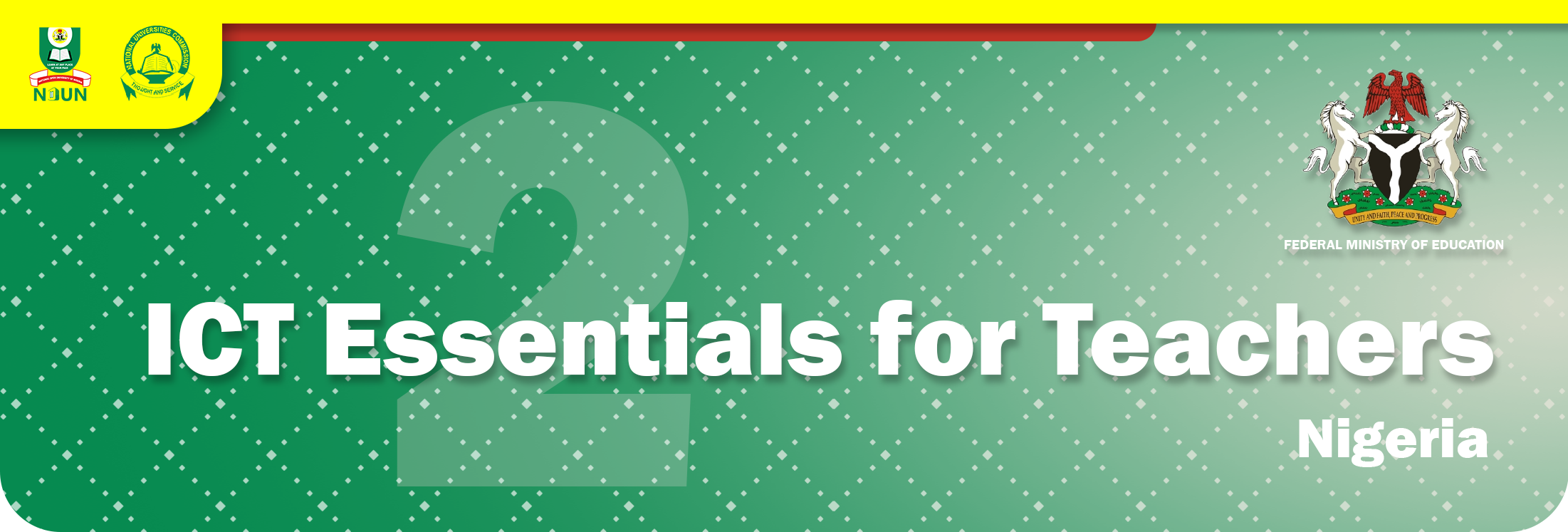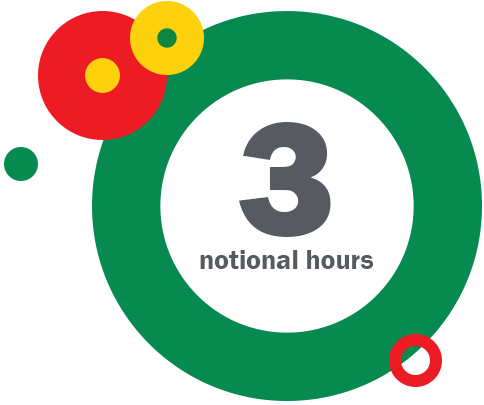General



![]()
The essence of Education in the 21st century is the delivery of knowledge and skill for nation building, intellectual development and character development. Education is for improving the quality of our thinking, thereby enabling us to take appropriate steps in solving societal problems and providing the suitable platform for human capital development. In order to achieve the above, there is need for institutions to set up curriculum standards that would be a bench mark to guide and support the progress of these objectives. The essential tool is the adoption of Information and Communications Technology (ICT). ICT would provide an effective platform for the delivery of Curriculum Standards provided by Institutions of Learning.
![]()
By the end of this unit, you will be able to:
The Concept of Information and Communications Technology
Information and Communications Technology or (ICT), is often used as an extended synonym for information technology (IT), but is a more specific term that stresses the role of unified communications and the integration of telecommunications (telephone lines and wireless signals), computers as well as necessary enterprise software, middleware, storage, and audio-visual systems, which enable users to access, store, transmit, and manipulate information. The term ICT is now also used to refer to the convergence of audio-visual and telephone networks with computer networks through a single cabling or link system. There are large economic incentives (huge cost savings due to elimination of the telephone network) to merge the audio-visual, building management and telephone network with the computer network system using a single unified system of cabling, signal distribution and management (Yekini, 2014).
How to find and navigate Nigerian Education authorities’ curricula websites
As a Teacher or Lecturer saddled with the responsibility of Curriculum delivery, it is important to leverage ICT to find and navigate sources of Curricula. To achieve this, the following steps would be followed:
Curriculum standards are general knowledge, skill and intellectual development that must be acquired by a student at a particular grade level of study. Curriculum is essential to guide Teachers and Educational Administrators on knowledge and skill to be delivered to the students and learners. ICT would provide a more efficient platform to deliver the Curriculum standards and the Curriculum to the recipients of instruction and teaching. The term 21st century skills refers to a broad set of knowledge, skills, work habits, and character traits that are believed—by educators, school reformers, college professors, employers, and others—to be critically important to success in today’s world, particularly in collegiate programs and contemporary careers and workplaces.
![]()
Hornby A.S., Wehmeier Sally (2000). Oxford Advanced Learners Dictionary. Oxford University Press, Oxford.
Retrieved from https://www.educarepk.com
Retrieved from https://connect.ebsco.com/s/article/EBSCOs-Curriculum- Standards-Module-Overview
Retrieved from https://blog.robotel.com/standards-curriculum
Retrieved from https://www.edglossary.org/21st-century-skills/
Retrieved from https://www.tomorrowtodayglobal.com/2016/04/25/16-skills-21st-century-education/
Yekini Nureni A. (2014), Information and Communication Technology (Concepts and Application). Hafem Pubilication Centre, Lagos![]()
ICT Essentials for Teachers (Nigeria) is licensed under a Creative Commons Attribution-ShareAlike 4.0 International License.
![]()
This course was made possible with the financial support of UNESCO.